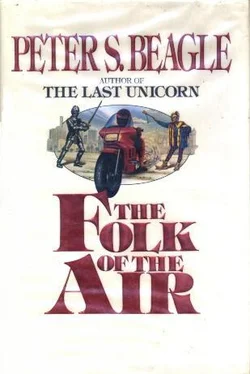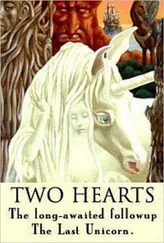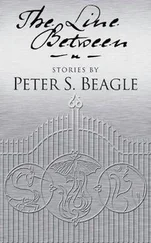Ben said, “Farrell, when I want California pieties, you’ll be the first I’ll ask.” They drove the rest of the way in silence, until, nearing the Waverly, he asked a very different question rather gently. “How’s she doing, by the way, Julie? You guys talking to each other at all?”
“We call,” Farrell said. “Micah sleeps a lot. Sometimes he has terrible nightmares and then he cries for hours. But he knows who he really is and what century he’s really in. We progress.”
“We certainly do. He’s already overqualified to be President. Will she be coming to the Tourney?”
Farrell shook his head. “She’s like you, it would take Sia to make her go. And she’s got this other person to take care of, and I am being civilized about it. I cannot believe how civilized I am being.”
“Um. Egil didn’t think much of our civilization, the little he saw of it. He thought it was probably all right, for people who really didn’t care a lot about anything.”
There was no parking left at the Waverly, and they were lucky to find curb space two blocks away. The great front lawn was sown with pavilions extending in wildflower clumps and surges across the courtyard, past the triton fountain and around to the rear of the hotel, overflowing the ornamental carriageways into the parking lot. The standards and blazons of the high nobles—the Nine Dukes and three or four others—were displayed in a grand arc facing the lists—an open stretch of greensward, bounded only by the lords’ pavilions and, at the far end, the gilded double throne—half porch swing, half howdah—in which King Bohemond and Queen Leonora would sit. There were merchants’ and craftsmens’ booths and the usual small dais for the musicians. Bright skeins of pennons and ensigns frisked up from many of the tents directly to the awnings and window ledges of the Waverly, so that the Tourney appeared to be a true part of the castle itself—a summer dishevelment, a careless unraveling of austere towers. The banner of the League—a crowned golden Sagittarius on a field of midnight blue—floated from the highest turret of the Waverly.
Pushing through a growing crowd of onlookers to step onto the tourney field was a new experience for Farrell. The League staged few public events: outsiders in proper dress were usually welcome at the tilts and revels, but only at the crafts fairs or at exhibitions of Renaissance dancing or medieval combat techniques had Farrell ever seen any tolerance for the casual spectator. “We’re not a softball game,” the Lady Criseyde had replied tersely, the one time he asked her about audiences, “We’re an air, an atmosphere. You don’t sell tickets to an atmosphere.”
“Maybe so,” Ben grunted when Farrell quoted her now. “All I know is, the first couple of years they had to rent the space. Now they get it for free, and all the help they need setting up, and the hotel starts advertising three months in advance. Part of their Labor Day package.” The young knights were already banging challenges on each other’s shields, hung outside their tents, and the children of the League went scampering across the lists, kicking out at each other like horses in the wind. Aiffe led them, pouncing and spinning with the rest and, when Farrell caught her eye, she laughed silently and turned a cartwheel.
“I’ll be damned,” Farrell said softly. “Look at that. He really pulled it off.” The lists were sprinkled thickly with tiny scarlet flowers, shaped exactly like the upright flukes of a sounding whale. Farrell bent close to touch one and found that it was real and growing, not thrust into the earth for the occasion, as he had assumed. Ben said only, “Happens every year. I have no idea how he does it.” They agreed to meet behind a particular pavilion after the opening ceremonies, and Farrell went off to take his place with Basilisk on the musicians’ dais. He put one of the scarlet flowers carefully in his cap, remembering the story of St. Whale.
A pair of cornets, cold and sweet and regal, silenced the tourney field precisely at twelve, convoying Bohemond and Leonora to the throne. Basilisk followed with a pavane for the entrance of the Nine Dukes and their households. It went strangely badly, sliding sideways out of the old instruments, twisting away off Farrell’s lutestrings, jeering like chalk on a blackboard. Hamid ibn Shanfara was standing nearby, scanning a scroll of music, and Farrell whispered, “What is it? We practiced the hell out of that tune, there’s no reason in the world for it to sound like that. This is very weird.”
Hamid shook his head. “The Whalemas Tourney is weird, man. Maybe it’s the being in public or the challenging of the King, the betting—I don’t know. It’s just always like this, everything all twitchy and feverish, all day.” He was dressed as richly as any of the nobles, in flowing black and gold, with a black turban. He nodded abruptly toward the double throne, now flanked by the two cornet players. “Look at Bohemond.”
King Bohemond was clad, not in his Byzantine-cut robe of state, but in armor, with a light blue cloak over him and a great helm in his lap. His round face, always too large and naked for the crown, showed no expression as he looked on Benedictis de Griffin, Raoul of Carcassonne, and Simon Widefarer; but the gym-teacher face of Queen Leonora stared at those knights, and at every other, with wide, numbed eyes and a jumping mouth. When the cornets sounded again, she put her hand on her husband’s mailed arm. Bohemond never turned his head.
“It really matters,” Farrell said in wonder. “She looks as if he’s really going out to be killed, and she’ll be sent into slavery. Hecuba and Priam, for God’s sake.”
Hamid rolled up the scroll and stuck it in his sash. “You still don’t understand,” he said without looking at Farrell. He strode away to stand with his back to the throne and sing St. Whale’s blessing in three languages on the day and the Tourney. When his singing ended, the first fighters came into the lists.
None of the early bouts involved King Bohemond. The fighters were boys, new-made knights or else squires seeking knighthood on the field. They circled, they lunged, they left themselves as exposed as the practice posts in the backyards, and frequently they took one another off-balance and rolled to earth embraced, losing their helms. Few of their combats lasted longer than three minutes, and the referee—one Sir Roric the Uncouth, who wore a full bearskin and a pair of plaid shorts—laughed and called jokes to a wincing John Erne as he named the victors. All around the edges of the lists and on the packed balconies of the Waverly, people in jogging suits and tennis whites cheered and clapped indiscriminately and kept trying to get their pictures taken with someone in armor.
But out of those first matches the Ronin Benkei, John Erne’s fragile-looking Nisei student, came stalking in armor like jewelry—iron and leather plates laced by cords of amber, amethyst, silver, and emerald into a skin as supple and glowing and adamant as the skin of a dragon. There was gold lacquer on the leather pieces, and a thread of some rainbow inlay dancing through the iron; and two scabbards made of lacquered wood, one long and one short, thrust through his silken red girdle. He wore no helmet but a half-mask of iron, snouted and fanged like a dragon, that covered his face from the bridge of the nose down, leaving his eyes showing like black inlay in his pale skin. He issued his challenges in silence, by pointing with his longsword, which he gripped in both hands during combat. Farrell heard the deepening murmur going among the nobles as they watched the Ronin Benkei scythe down three young knights in a row, battering them effortlessly from every side, like a mountain wind. After the third knight fell, to breathe like an asthmatic the rest of the day from a two-handed blow under the ribs, Farrell said aloud, hardly knowing it, “When did he get that good?”
Читать дальше












